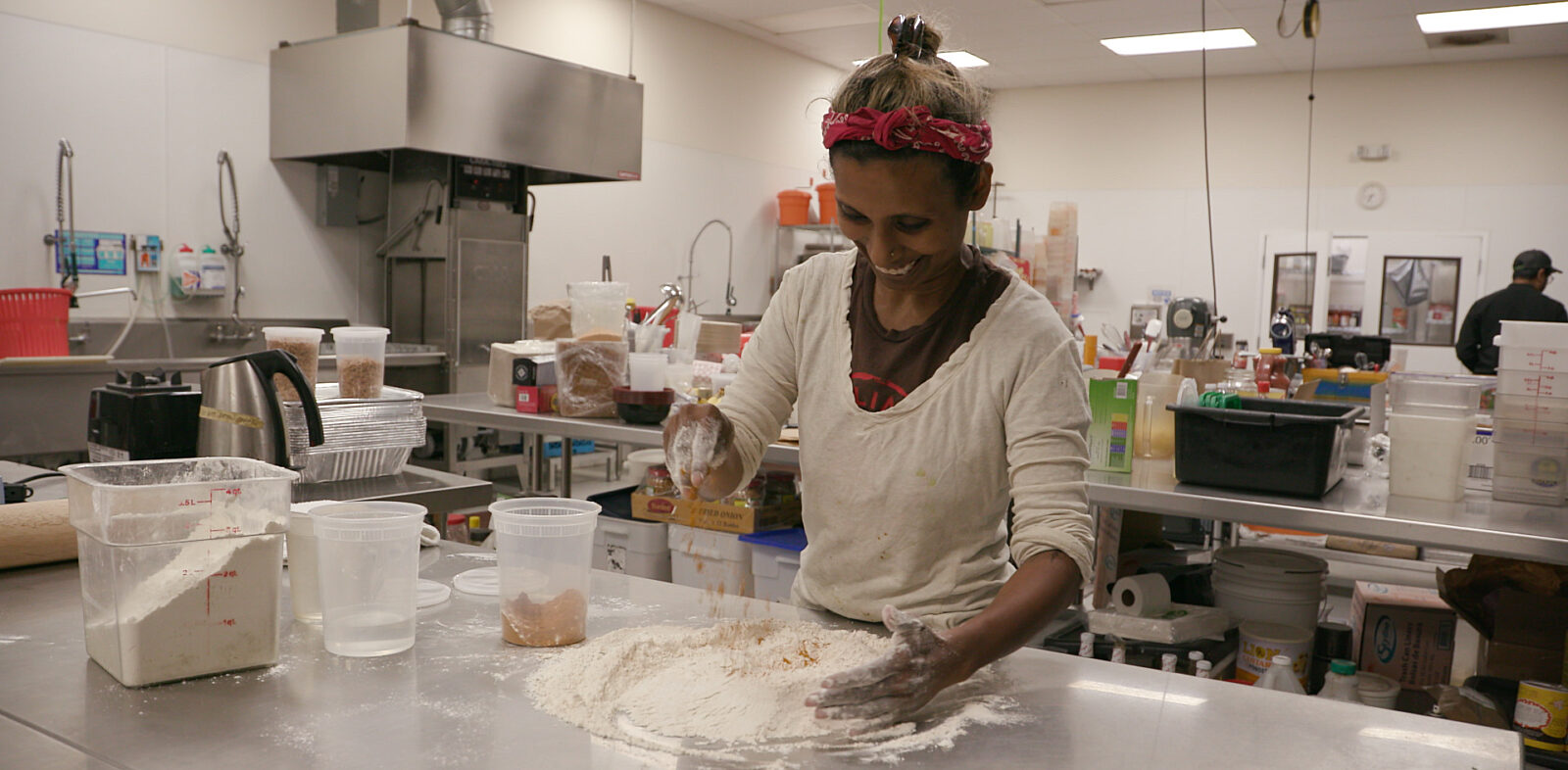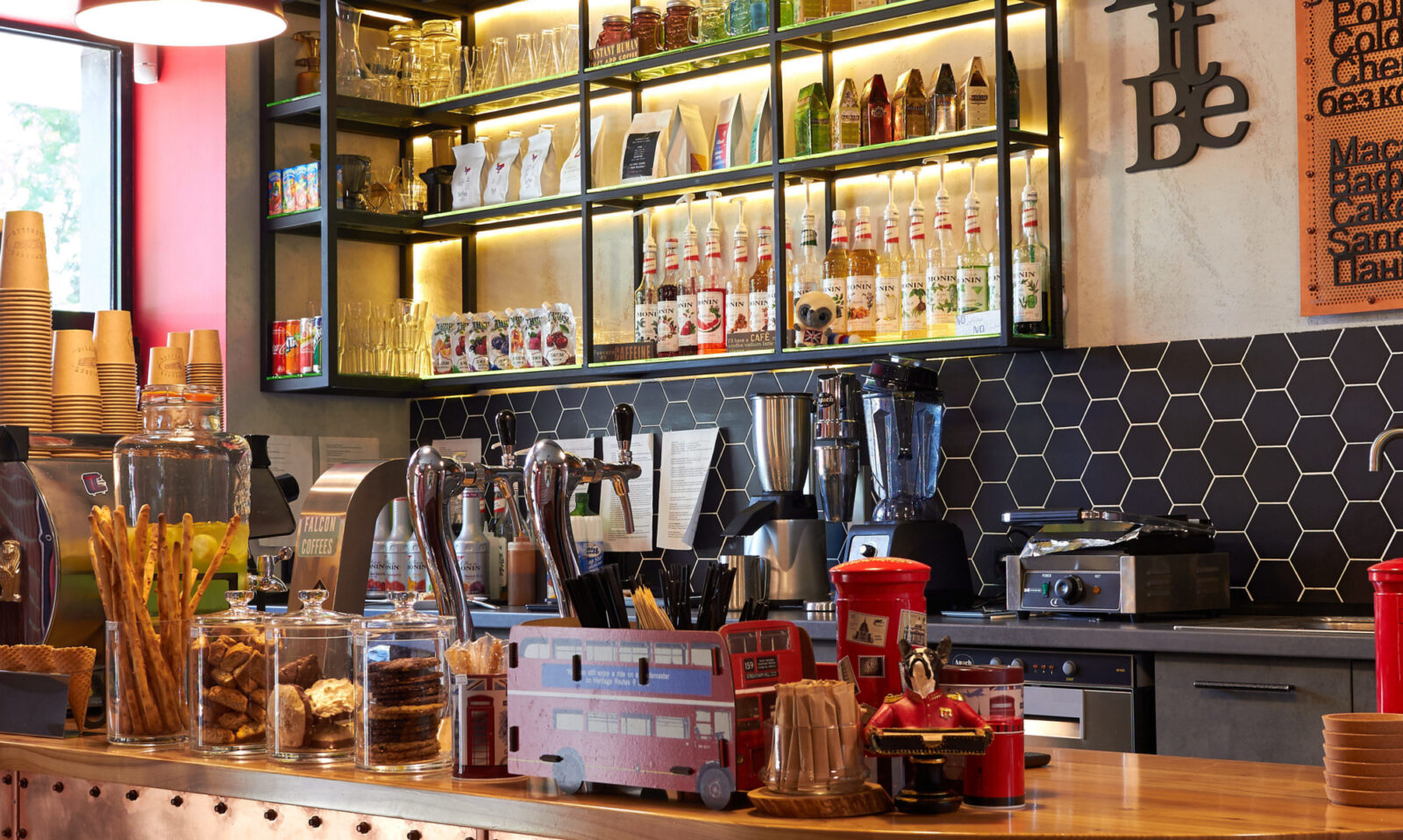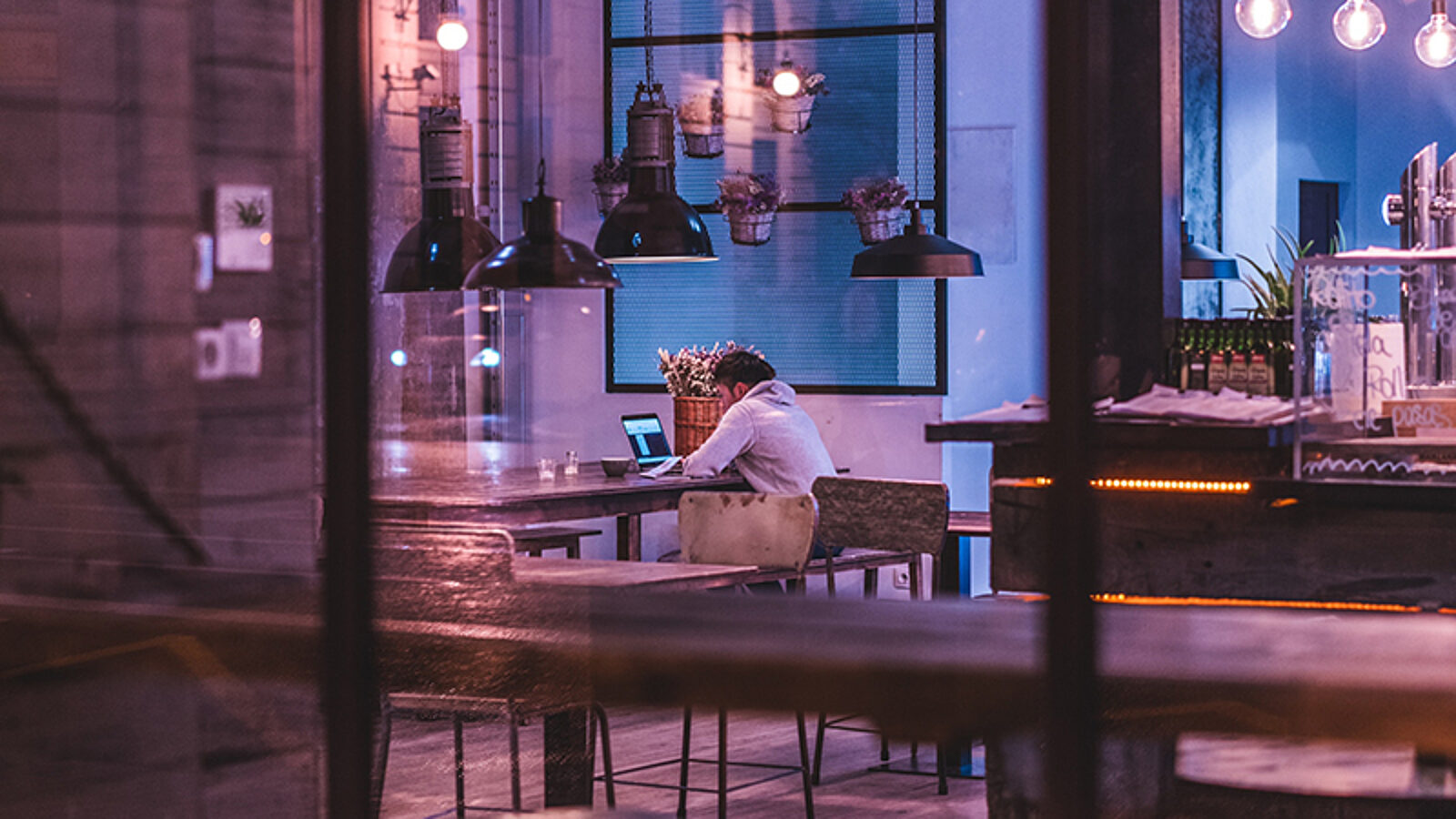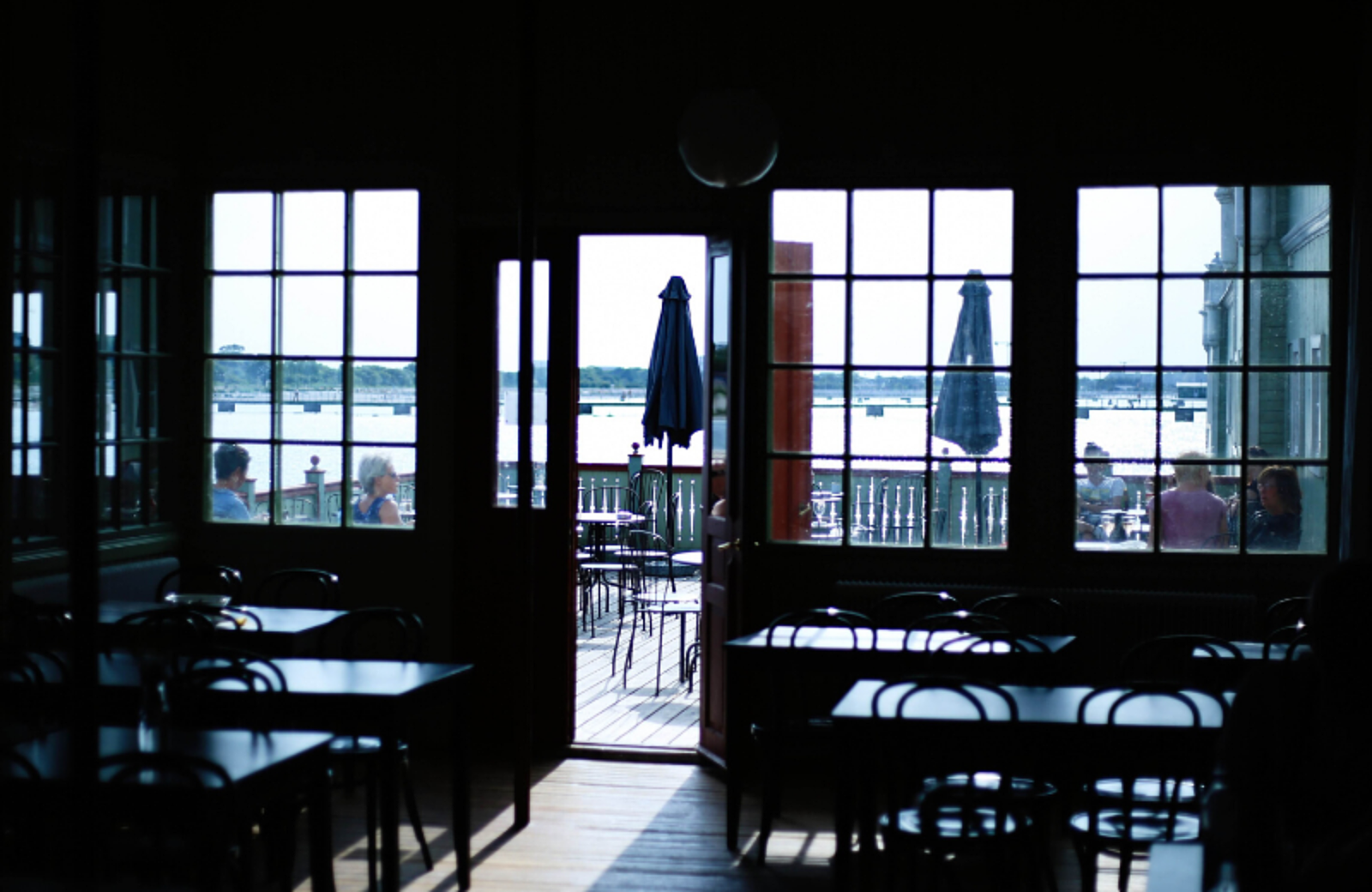
Immigrant and BIPOC Restaurateurs Face an Even Tougher COVID-19 Reality
“There’s so much that needs to be done to level the playing field,” says Cheryl Straughter, owner of Soleil Restaurant and Catering.

Vidya RaoAuthor
*“BIPOC is an acronym that stands for Black, Indigenous and people of color. The term is meant to unite all people of color while acknowledging that Black and Indigenous people face different and often more severe forms of racial oppression and cultural erasure as consequences of systemic white supremacy and colonialism. It is a noun and since it includes the word "people" it would be redundant to say "BIPOC people." It is pronounced "buy-pock" as opposed to saying each letter individually." - Diversity Style Guide
“We’ve lost 90 percent of our business,” says a frustrated Azalina Eusope, chef and owner of San Francisco restaurant Azalina’s. “The bills just keep piling up.”
Eusope, a descendant of five generations of street food vendors, has dreamed of sharing her native Mamak cuisine — Malaysian street food rooted in South Indian Muslim culture — with the world. Just a few months prior, Eusope was well on her way to achieving that dream, with plans for three more locations. But, as so many other business owners experienced, her progress came to a screeching halt thanks to COVID-19.
Her revenue from catering dissolved as people stopped gathering, and foot traffic to her location in the Twitter building all but vanished as surrounding offices stayed shuttered in favor of extending remote work. Even delivery, she says, has not proved profitable.
“I guess people here don’t get up in the morning and say ‘Let me order some Mamak food today,’” Eusope says wryly.
Eusope has dipped into her personal savings and taken a second mortgage out on her home to stay afloat and pay her employees. For her, layoffs are not an option.
These people have families. A lot of them are immigrants and they can't apply for unemployment. We’re all they have and I can’t abandon them.

Azalina Eusope
Chef and Owner of Azalina's
“These people have families,” Eusope says. “A lot of them are immigrants, and they can't apply for unemployment. We’re all they have and I can’t abandon them.”
While many small businesses are suffering right now, small businesses owned by immigrants and Black, Indigenous, and People of Color* (BIPOC) have faced even more challenges. In fact, the National Bureau of Economic Research found that 41 percent of Black-owned businesses permanently closed between February and April as a result of COVID-19 restrictions.
For restaurants, which have slim profit margins to begin with, these statistics are likely to be even worse. Eight million restaurant workers have already been laid off, according to the National Restaurant Association, and a McKinsey & Company report suggests that about one out of five restaurants will be permanently closed by 2021.
Access to PPP funds
The Small Business Administration’s Paycheck Protection Program (PPP), which offers loans that can be converted into grants, was meant to be a lifeline to small businesses. Currently, applications remain open until August 8th. But from the beginning, there have been problems with the program.
For one, the initial guidelines for loan forgiveness just didn’t make sense for restaurants.
Eric Wang, co-owner of Burmese restaurant Thamee in Washington, D.C., said he and other restaurateurs tend to use smaller banks, which didn’t even have access to the first round of PPP funds. And even when he did secure a loan during the second round, he says, he was too scared to spend the money.
“The money actually sat in our account for four weeks before I was comfortable to touch it,” Wang says. “You had to hire the exact same number of employees by June 30, 2020, regardless of your situation, in order to qualify for forgiveness. That’s just unrealistic. If we're on a limited service, we're doing a limited amount of business. And you had to use 75 percent of the funds for payroll. But for most restaurants, our payroll makes up about 39 percent.”
 Image courtesy of Thamee.
Image courtesy of Thamee.
While these guidelines were later updated, it meant that restaurant owners, particularly those who didn’t want to go further into debt, lost precious time when they were already in trouble.
“The first round of funding ran out in less than a week and went overwhelmingly to larger businesses with established relationships with lenders,” according to the Association for Neighborhood & Housing Development, a community advocacy organization in hard-hit Queens, New York. “The second round has been slower, and allows for more funding by Community Development Financial Institutions. But small businesses are still being left out, particularly those owned by Black and Brown people and by immigrants.”
The loans are administered by banks, and those who have strong relationships with banks are likely to get better service and communication about their options. After all, simple mistakes can lead to a loan being denied. Each bank has its own application process and there’s variance in what information is needed and how it should be submitted. It’s confusing enough that $130 billion in funding has remained undistributed even after the second round.
Many BIPOC and immigrants, especially immigrants newer to the country, just don’t have those existing bank relationships, putting them at a disadvantage. A recent Color of Change survey of 500 Black and Latinx small business owners found that half of them requested loan amounts of less than $20,000. Only 12 percent reported receiving the amount they requested, 41 percent received nothing, and 21 percent had not heard back. Several of the restaurateurs interviewed for this piece reported never hearing back on their application, or being denied without being given a reason.
That's what Cheryl Straughter, owner of Soleil Restaurant and Catering in Boston, experienced.
 Image courtesy of Soleil Restaurant and Catering.
Image courtesy of Soleil Restaurant and Catering.
“I applied to eight different entities on all levels of government that were supporting businesses,” said Straughter, who is Black and a founding member of the Boston Black Hospitality Coalition. “None of them came through.”
Straughter did receive a grant from the NAACP and, in late June, received a bridge loan.
We’re in this for the long haul. There’s so much that needs to be done to level the playing field.

Cheryl Straughter
Owner of Soleil Restaurant and Catering, and Founding Member of Black Boston Hospitality Coalition
Immigrants face other obstacles as well. The Association for Neighborhood & Housing Development (ANHD) pointed out that immigrants without social security numbers can’t apply to the PPP, even if they pay taxes with an Individual Tax ID Number (ITIN). On top of that, they say, “Outreach is harder with fewer opportunities to reach immigrants in person and through more traditional means that were common pre-COVID. Small businesses may not know they can apply, or assume they are ineligible and not apply.”
Eusope says she was unable to secure a PPP loan after multiple attempts, saying that there were complications due to her being on a green card. “I kept being told they couldn’t find me in the system,” she says, without getting any further assistance from her bank. The dissemination of information around PPP loans has been spotty, and many restaurateurs, including Eusope, hadn’t heard that the loans could, in some cases, be forgiven.
Amplifying pre-existing conditions
It’s impossible to divorce the current challenges that BIPOC and immigrant restaurateurs are facing from the history of racism in America, particularly against the Black community.
“African American communities across the country didn’t have positive banking relationships,” says Straughter, pointing to racist practices like redlining, which ensured that Black people didn’t get approved for mortgages. “There are a lot of people who just don't trust the bank.”
Over time, this has led to fewer Black homeowners, limited access to lines of credit, and a fraught relationship with lending institutions. “We’ve just never been able to leverage these pockets of financial support,” Straughter explains. “Layer on top of that a global pandemic, and it's just devastating.”
Massive healthcare disparities mean that Black and Latinx people are more likely to have pre-existing health conditions and are less likely to have access to nutritious food, making them more susceptible to COVID-19. As a result, according to the Center for Disease Control, Black and Latinx people are five and four times more likely to be hospitalized as a result of COVID-19, respectively.
BIPOC are also disproportionately represented among frontline workers, from hospital staff to the service industry – 47 percent of restaurant workers are people of color, according to the National Restaurant Association – so they are less likely to be able to work from home. They are riding the subways, working with patients, making deliveries, and dealing with customers. Ultimately, they are more at risk for catching the virus.
Post-COVID, every one of the inequalities that already existed was just exposed. Nothing that's happening right now is new. It's just that it's much more pronounced and we are at a crisis point.
Lena Afridi
Director of Policy for the Association for Neighborhood and Housing Development
This has a big impact on minority-owned businesses, whose clientele often reflects the community. If patrons are getting sick and/or facing economic hardship, they are not frequenting restaurants. And those regular customers are critical for businesses owned by BIPOC and immigrants, particularly for the restaurants that are located in neighborhoods largely populated by members of their own communities.
“Restaurants are the centers of a community,” explains Lena Afridi, Director of Policy for ANHD. “And when the community is suffering, when the community is experiencing job loss, housing instability, and food insecurity, they're not going to have the resources to spend their money on getting takeout, and, especially if they can't physically sit in a place where that sense of community is found, it's not going to be where they're spending their resources.”
Vulnerable to abuse
The current situation also leaves immigrants and BIPOC more vulnerable to abuse from landlords. An ANHD survey in New York City found that 40 percent of immigrant-owned small businesses reported being harassed by their landlord. This was happening prior to the pandemic, said Afridi, who recounted a Brooklyn landlord going into an immigrant tenant’s restaurant during the dinner rush and turning off the hot water.
Because immigrants may have informal agreements with their landlords rather than commercial leases, they may have less recourse to stop harassment. As restrictions related to COVID-19 make paying sky-high rents on time difficult, such harassment and evictions may increase even for tenants who have leases, particularly in neighborhoods that are already in the process of gentrifying.
“Post-COVID, every one of the inequalities that already existed was just exposed,” Afridi says. “Nothing that's happening right now is new. It's just that it's much more pronounced and we are at a crisis point.”
A ‘reckoning’
The future is uncertain right now, as the pandemic’s trajectory and resulting restrictions keep changing. Jocelyn Law-Yone, chef and co-owner of Burmese restaurant Thamee, wonders how interactions with customers will look in the future, particularly when customers are not familiar with the food.
“So much of Burmese food and what we do is about storytelling. The food is more nuanced and dishes need explanation, where they come from and what they are,” Law-Yone says. “Contact with customers is a big part of what we do, so we need to rethink that entirely.”

So much of Burmese food and what we do is about storytelling. The food is more nuanced and dishes need explanation, where they come from and what they are. Contact with customers is a big part of what we do, so we need to rethink that entirely.

Jocelyn Law-Yone
Chef and Owner of Thamee
Eusope, too, wonders if customers will ever return.
“I already see lines for some restaurants that have outdoor seating. I know that the Michelin star restaurants won’t have a problem. But if you’re not on the radar for hipsters, how do you survive?” she says.

I already see lines for some restaurants that have outdoor seating. I know that the Michelin star restaurants won’t have a problem. But if you’re not on the radar for hipsters, how do you survive?

Azalina Eusope
Chef and Owner of Azalina's
That’s one of the reasons Straughter and four other Black restaurateurs created the Boston Black Hospitality Coalition. They have been sharing information and resources to get through the pandemic, pushing for legislative support, and planning to raise funds for Black-owned businesses well after the COVID-19 threat has ended.
“We’re in this for the long haul,” says Straughter, “There’s so much that needs to be done to level the playing field.”
Restaurateurs are certain of one thing: they can’t ignore the inequalities that COVID-19 has highlighted, from the precarious situation that BIPOC and immigrant restaurateurs face, to how restaurant workers are treated. The time for change, they say, is now.
“I think this is a time of reckoning for a lot of people who were in the restaurant industry, because now they've had time to sort of reflect, to see how vulnerable this industry is,” posits Eric Wang, co-owner of Thamee. “Ask yourself, do you remember air travel on September 10, 2001? We're going to see that level of change to our daily lives, including the restaurant industry, after this pandemic.”
Related Restaurant Resources
Is this article helpful?
DISCLAIMER: This information is provided for general informational purposes only, and publication does not constitute an endorsement. Toast does not warrant the accuracy or completeness of any information, text, graphics, links, or other items contained within this content. Toast does not guarantee you will achieve any specific results if you follow any advice herein. It may be advisable for you to consult with a professional such as a lawyer, accountant, or business advisor for advice specific to your situation.
Read More
Subscribe to On the Line
Sign up to get industry intel, advice, tools, and honest takes from real people tackling their restaurants’ greatest challenges.


